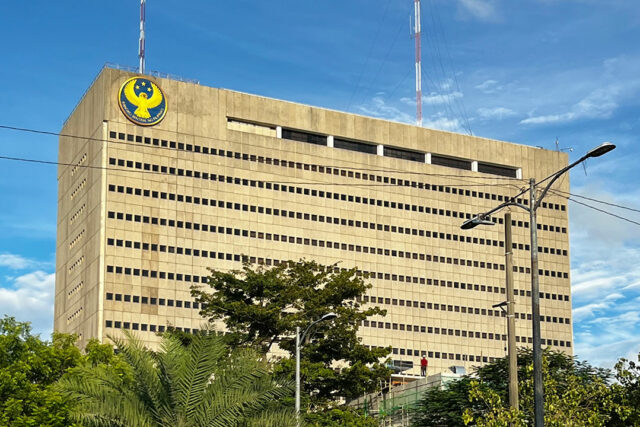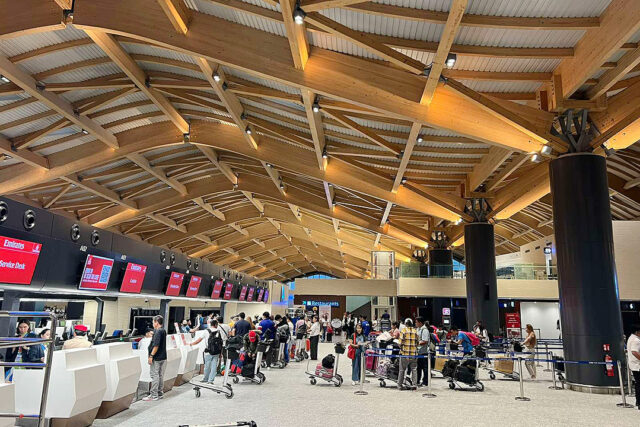Beach Boys founder Brian Wilson, 82
BEACH BOYS cofounder Brian Wilson, who created some of rock’s most enduring songs such as “Good Vibrations” and “God Only Knows” in a career that was marked by a decades-long battle between his musical genius, drug abuse and mental health issues, has died at the age of 82.
Mr. Wilson’s family announced his death in a statement on the singer’s website.
“We are at a loss for words right now,” the statement said. “We realize that we are sharing our grief with the world.”
The statement did not disclose a cause of death. Mr. Wilson had suffered from dementia and was unable to care for himself after his wife Melinda Wilson died in early 2024, prompting his family to put him under conservatorship.
Starting in 1961, the Beach Boys put out a string of sunny hits celebrating the touchstones of California youth culture — surfing, cars and romance. But what made the songs special was the ethereal harmonies that Mr. Wilson arranged and that would become the band’s lasting trademark.
Mr. Wilson formed the band with younger brothers Carl and Dennis, cousin Mike Love and friend Al Jardine in their hometown, the Los Angeles suburb of Hawthorne. They went on to have 36 Top 40 hits, with Mr. Wilson writing and composing most of the early works.
Songs such as “Little Deuce Coupe,” “Surfin’ U.S.A.,” “California Girls,” “Fun, Fun, Fun” and “Help Me, Rhonda” remain instantly recognizable and eminently danceable.
But there were plenty of bad vibrations in Mr. Wilson’s life: an abusive father, a cornucopia of drugs, a series of mental breakdowns, long periods of seclusion and depression and voices in his head that, even when he was on stage, told him he was no good.
“I’ve lived a very, very difficult, haunted life,” Mr. Wilson told The Washington Post in 2007.
In May 2024, a judge ruled the 81-year-old Mr. Wilson should be put under a conservatorship after two longtime associates had petitioned the court at his family’s request, saying he could not care for himself following the death of his wife, Melinda.
By 1966 touring had already become an ordeal for Mr. Wilson, who suffered what would be his first mental breakdown. He remained the Beach Boys’ mastermind but retreated to the studio to work, usually without his bandmates, on Pet Sounds, a symphonic reflection on the loss of innocence.
The landmark “Good Vibrations” was recorded during those sessions, though it did not make it to the album. Though Pet Sounds included hits such as “Wouldn’t It Be Nice,” “Sloop John B” and “God Only Knows,” it was not an immediate commercial success in the United States. There also was resistance to the album within the band, especially from singer Mr. Love, who wanted to stick with the proven money-making sound.
‘IT’S LIKE FALLING IN LOVE’
Pet Sounds, which was released in 1966, later would come to be recognized as Mr. Wilson’s magnum opus. Paul McCartney said it was an influence on the Beatles’ Sgt. Pepper’s Lonely Hearts Club Band. “No one’s musical education is complete until they’ve heard Pet Sounds,” Mr. McCartney said.
In 2012 Rolling Stone magazine ranked it second only to Sgt. Pepper on its list of the 500 greatest rock albums.
“Hearing Pet Sounds gave me the kind of feeling that raises the hairs on the back of your neck and you say, ‘What is that? It’s fantastic,’” George Martin, the Beatles’ legendary producer, said in the liner notes of a reissued version of the album. “It’s like falling in love.”
Released as a single that same year, “Good Vibrations” drew similar plaudits. On hearing the song, which would become the Beach Boys’ greatest hit, Art Garfunkel called his musical partner Paul Simon to say: “I think I just heard the greatest, most creative record of them all.”
Stars of the music world paid tribute to Mr. Wilson on Wednesday.
“Anyone with a musical bone in their body must be grateful for Brian Wilson’s genius magical touch!!,” Fleetwood Mac drummer Mick Fleetwood said on social media.
Nancy Sinatra, who recorded a cover of “California Girls” with Mr. Wilson in 2002, wrote on Instagram that Mr. Wilson’s “cherished music will live forever.”
Sean Ono Lennon, a musician and son of John Lennon, called Mr. Wilson “our American Mozart” and “a one-of-a-kind genius from another world.”
The Beach Boys sold more than 100 million records.
Mr. Wilson’s career would be derailed, though, as his use of LSD, cocaine and alcohol became untenable and his mental state, which would eventually be diagnosed as schizoaffective disorder with auditory hallucinations, grew shakier.
He became a recluse, lying in bed for days, abandoning hygiene, growing obese and sometimes venturing out in a bathrobe and slippers. He had a sandbox installed in his dining room and put his piano there. He also heard voices and was afraid that the lyrics of one of his songs were responsible for a series of fires in Los Angeles.
UNORTHODOX THERAPY
Born in June 1942, Brian Wilson, whose life was the subject of the 2014 movie “Love & Mercy,” had two controlling men in his life. The first was his father, Murry Wilson, a part-time songwriter who recognized his son’s musical talent early. He became the Beach Boys’ manager and producer in their early years but also was physically and verbally abusive toward them. The band fired him in 1964.
About a decade later, as Mr. Wilson floundered, his then-wife, Marilyn, hired psychotherapist Eugene Landy to help him. Mr. Landy spent 14 months with Mr. Wilson, using unusual methods such as promising him a cheeseburger if he wrote a song, before being dismissed.
Mr. Landy was rehired in 1983 after Mr. Wilson went through another period of disturbing behavior that included overdosing, living in a city park and running up substantial debt. Mr. Landy used a 24-hour-a-day technique, which involved prescribing psychotropic drugs and padlocking the refrigerator, and eventually held sway over all aspects of Mr. Wilson’s life, including serving as producer and co-writer of his music when he made a comeback with a 1988 solo album.
Mr. Wilson’s family went to court to end his relationship with Mr. Landy in 1992. Mr. Wilson said Mr. Landy had saved his life but also would later call him manipulative. California medical regulators accused Mr. Landy, who died in 2006, of improper involvement with a patient’s affairs. He gave up his psychology license after admitting to unlawfully prescribing drugs.
Mr. Wilson’s return to music was spotty. He appeared frail, tentative and shaky and none of the post-comeback work brought anything close to the acclaim of his earlier catalog.
One of the best-received albums of his second act was the 2004 Brian Wilson Presents Smile, a revisiting of the work that had been intended as the follow-up to Pet Sounds but which was scrapped because of opposition from bandmates.
Mr. Wilson’s brothers had both died by the time of the Beach Boys’ 50th reunion tour in 2012 but he joined Mr. Love, who became the band’s controlling force, for several shows. In the end, Mr. Wilson said he felt as if he had been fired but Mr. Love denied it. Mr. Wilson last performed live in 2022.
Mr. Wilson and his first wife, Marilyn, had two daughters, Carnie and Wendy, who had hits in the 1990s as part of the group Wilson Phillips. He and his second wife Melinda, whom he met when she sold him a car, had five children. — Reuters




![solar-panels-[MICHAEL-WILSON-UNSPLASH]](https://www.bworldonline.com/wp-content/uploads/2024/12/solar-panels-MICHAEL-WILSON-UNSPLASH-640x427.jpg)









